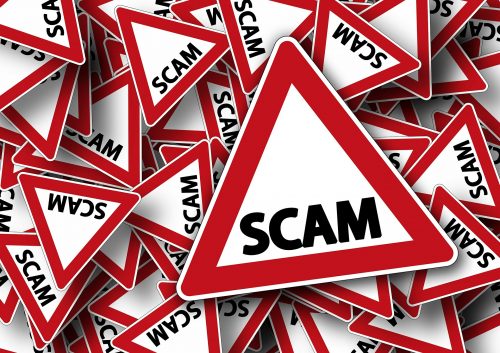
Scams are at least as common today as they ever were. Scammers have access to a significant amount of technology, giving them greater reach. Plus, every year can come with certain unique opportunities, and scams in 2020 will be no exception. As a result, keeping yourself safe can be a challenge. If you want to make sure you aren’t caught in a scammer’s web, here are the scams you need to know about in 2020.
2020 Census Scams
The 2020 Census officially starts on January 21, even though Census Day is actually on April 1. Every household in the country will receive a packet in the mail or might be visited by a Census worker, and they’ll be asked to provide a range of personal information.
Since the 2020 Census involves sharing details about yourself and household, scammers are going to take advantage of the situation. Some may try to masquerade as Census Bureau employees or communications in hopes of getting you to divulge details that let them steal your identity. Others may create robocalls threatening you with legal action if you don’t pay a fee, not unlike the IRS scam calls.
Avoiding 2020 Census scams may seem like a challenge. However, if you know how the process works, that can help. For example, remember that the Census Bureau will not communicate with you by email, so assume that any message claiming to be from the agency is likely a scam.
Similarly, understand that you don’t have to pay any fees when you complete the 2020 Census, so requests for money aren’t legitimate either. The Census also doesn’t require your Social Security Number or bank details, so anything saying that it does is a scam. You also can’t be arrested for not participating, so ignore any threats that claim you’ll go to jail because of not completing the 2020 Census unless you pay a fine.
Phishing and Whaling
When a ne’er-do-well tries to convince you to divulge personal information by pretending to be a legitimate representative of a trusted institution, like your bank, they are phishing. If you happen to be a “big fish,” then the world of identity thieves consider you a “whale,” so those attempts are then labeled “whaling.”
While neither of those concepts are new, they continue to make waves. Spam emails and phone calls remain common, so they need to be on your radar in 2020.
If you have any doubts about a request for your information, then don’t provide any details. Instead, call the company or agency using its main phone number (not one listed in any emails or voicemails you receive). Look up the phone number on your own, just to make sure you get the right one. Then, ask if the communication was really from them.
Medicare Scams
If you or a household member are turning 65 in 2020, watch out for Medicare scams. This can include threatening phone calls that say your coverage won’t start (or will be canceled) unless you pay a fee or “verify” your account by providing your Medicare card number as well as robocalls selling Medicare supplements or policies that require your credit card number.
It’s important to remember that Medicare will never call you out of the blue. If you didn’t initiate a contact request, Medicare isn’t going to reach out over the phone.
For those looking for supplemental Medicare plans, never respond to an unsolicited phone call or email. Instead, go to Medicare’s Plan Finder online. There, you can review options and enroll safely.
IRS Scams
Now that the new year is underway, people are preparing to file their 2019 federal taxes. As a result, there could be an uptick in IRS-related scams. This can include emails or phone calls that claim you owe money and that you need to pay them immediately as well as communications that say they have information about your refund but need you to “verify” your personal information, allowing them to steal your identity.
You may even see scam emails that claim to be from tax filing services. Again, the goal is to get you to either provide your login details to your real account or complete documents that look like real IRS ones, all in hopes of getting information that lets them steal your identity or learn your credit card number.
Like Medicare, the IRS will never call you, even if there is an issue with your taxes. Instead, the agency communicates by mail if they need to reach you. If you have doubts about a tax service email from a company you use, never click the email links or provide information during an unsolicited phone call. Instead, go to the company’s website on your own or call them using a main number to verify the request is legitimate. If you don’t use the company, then it’s best to be wary of the message or call as well.
Are you aware of any scams in 2020 that our readers should know about? Tell us about them in the comments below.
Read More:
- Is 2020 the Year to Start Your Own Business?
- Couple’s Challenge-Save $ a Day for the Next 365 Days
- New Year’s Financial Resolutions Every Couple Should Follow
